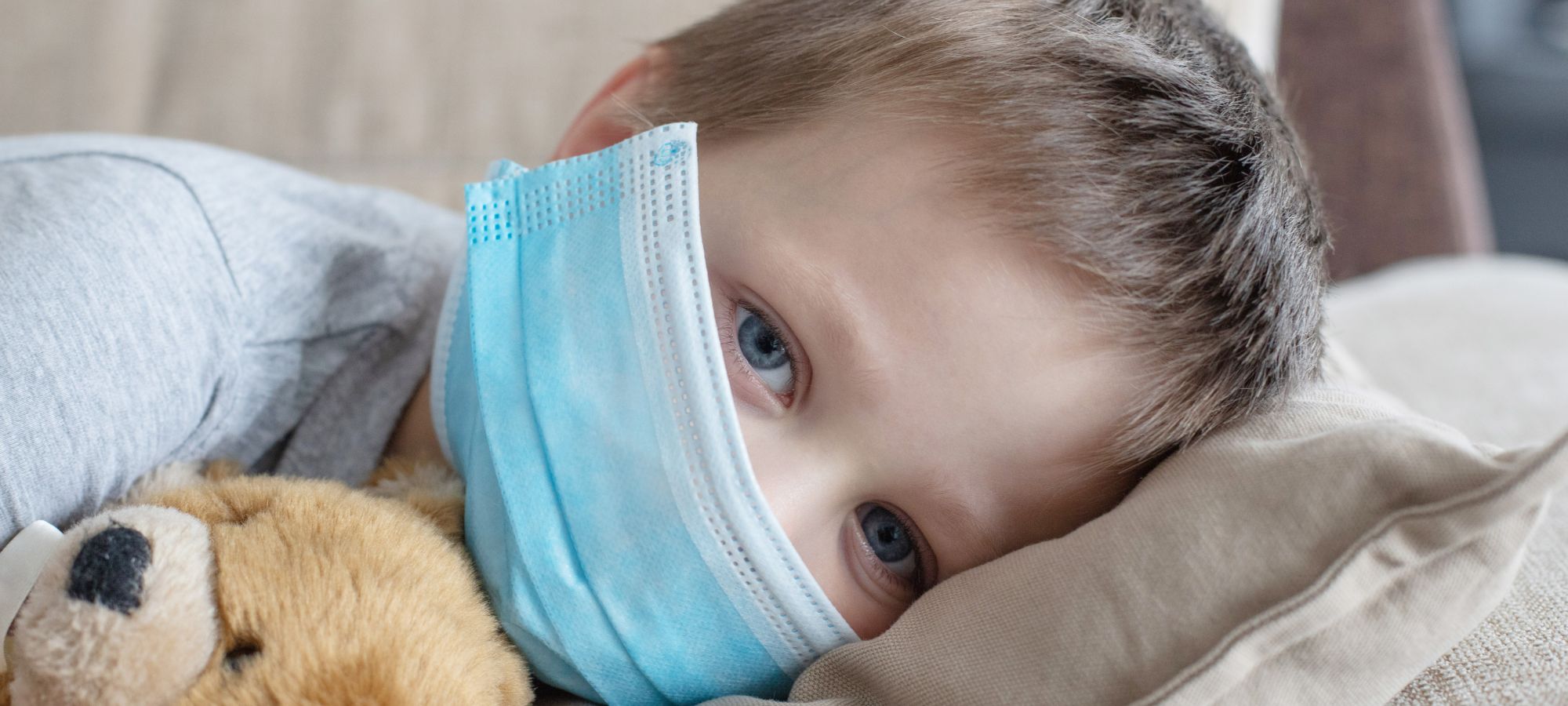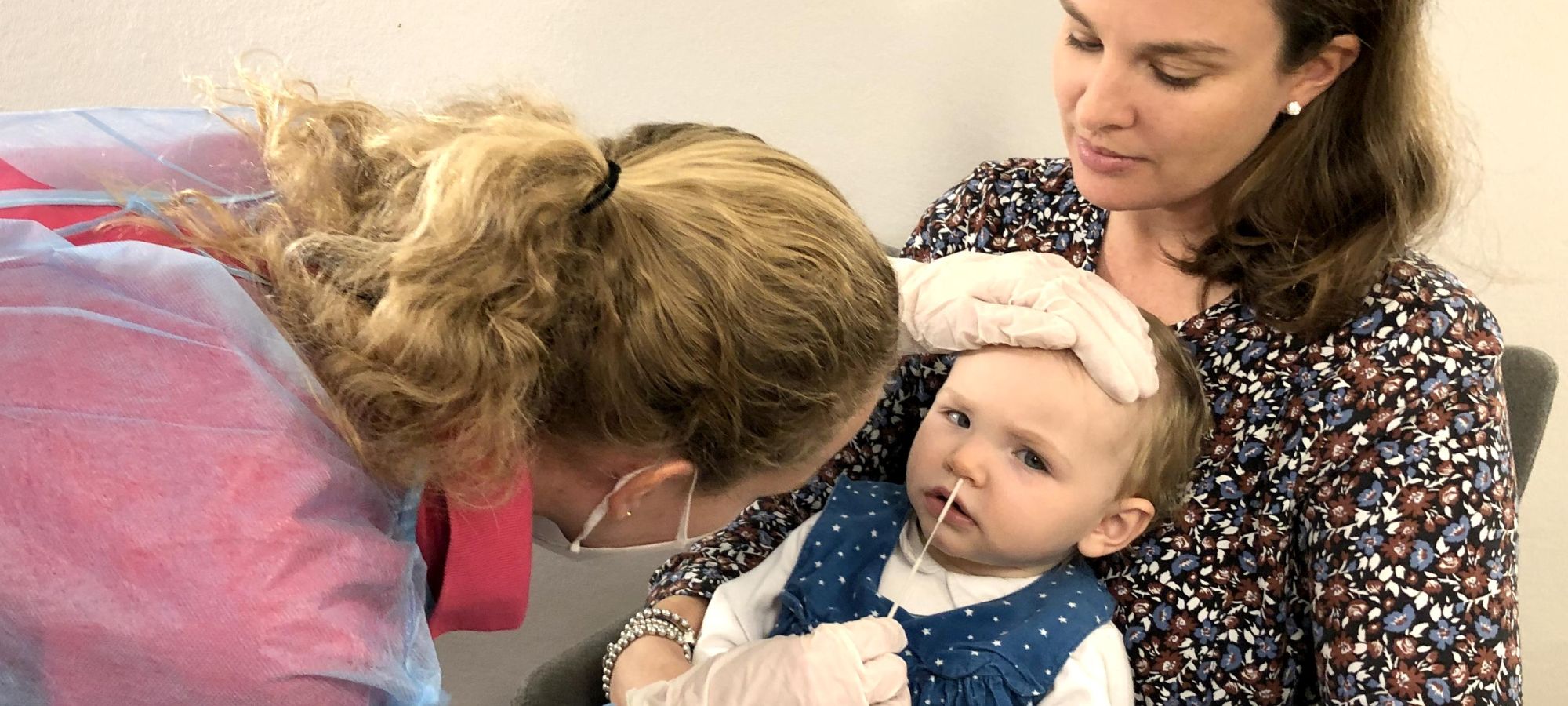What is the coronavirus?
The new "SARS-CoV-2" coronavirus originated in Asia in 2019, and it then increasingly spread around the globe. The virus is transmitted from person to person via smear and droplet infection, i.e., by sneezing or coughing. The virus belongs to the group of coronaviruses and causes the "COVID-19" disease, which can be accompanied by severe pneumonia and lead to respiratory failure.
What are the typical symptoms of coronavirus?
An infection with the new coronavirus can have a variety of symptoms. The main symptoms include:
- Fever
- Coughing
- Loss of smell and taste
- Fatigue/exhaustion
- Sore limbs
The good news is that COVID-19 usually causes only mild symptoms in children. Children also experience less typical symptoms such as headaches, diarrhea or vomiting, which are slightly more common than in adults.
Are there any diseases that have similar symptoms?
Especially now in the winter and therefore cold season, it is difficult to distinguish between an infection with the new coronavirus and another viral infection. Coronaviruses are among the viruses that cause colds. A "normal" cold is also associated with a fever, coughing and runny nose.
But other viral diseases are not the only ones that can cause such symptoms. Your child could also have a serious illness such as bacterial pneumonia.
You should therefore always take your sick child to your pediatrician. The doctor can then decide which treatment your child needs and whether a test for the new coronavirus is necessary.
How do coronavirus tests work?
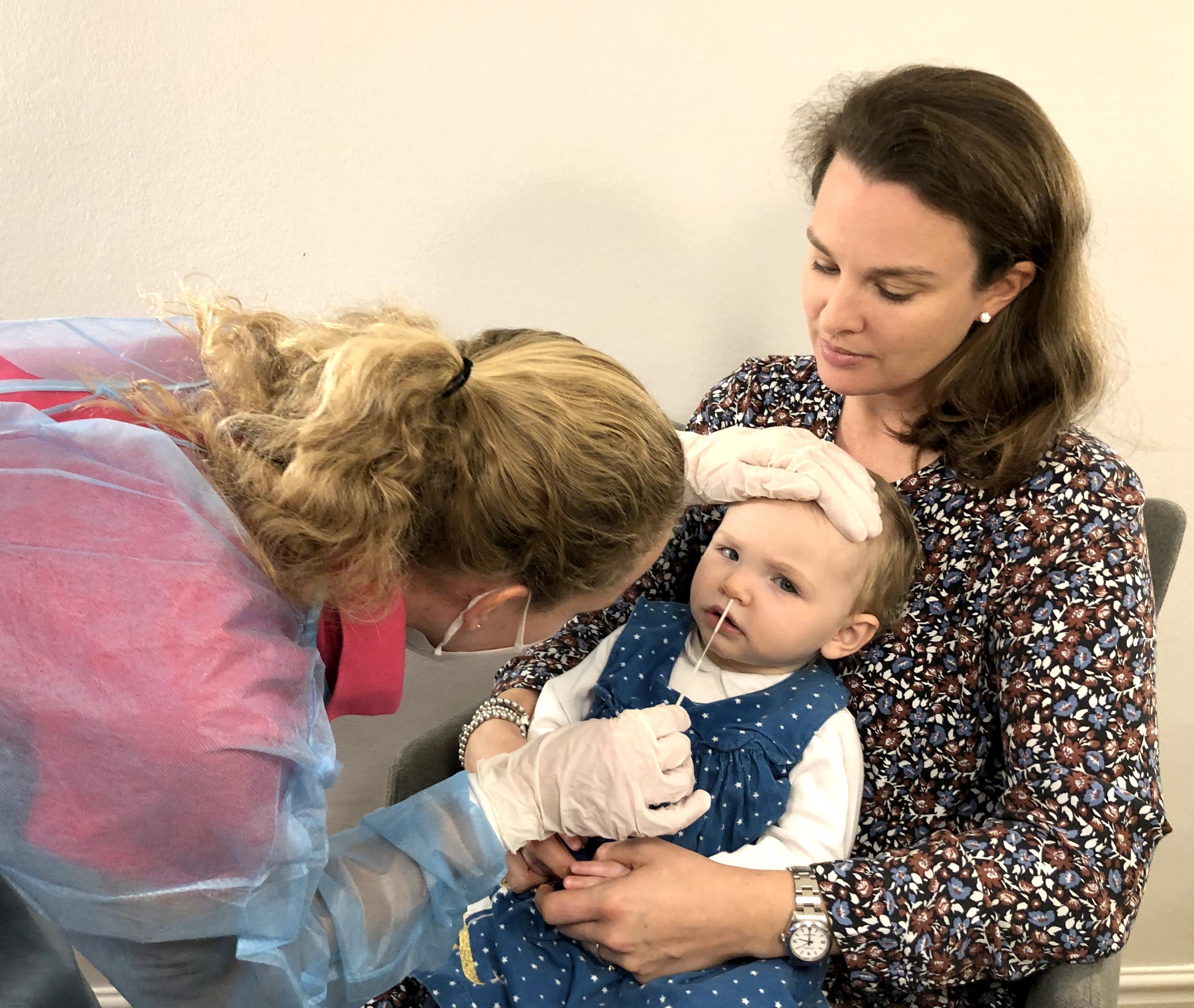
Don't worry—while the test for the new coronavirus is a little uncomfortable, it doesn't hurt.
A long, ultra-fine cotton swab is used to collect a small sample of secretion from the nose or throat, which is then sent to the laboratory. The cotton swab can also tickle the nose so much that your child has to sneeze. As a result, doctors also wear protective equipment.
Usually, we receive the result within a day and will promptly inform you—whether it is positive or negative—and provide appropriate advice.
What does isolation or quarantine mean for a sick child?
If the pediatrician decides that a swab for the coronavirus is necessary, you should self-isolate at home until the test result is received. This means that you and your child should stay at home and avoid receiving any visitors.
If your child has symptoms of a cold, but your pediatrician does not recommend a swab based on the recommended criteria, you should self-isolate at home until your child has been fever-free for at least 24 hours. This means you should avoid any contact with other people—directly or indirectly.
While there is no positive test result, the other family members living in the house are still allowed to go to work and leave the house during this time. Nevertheless, they should also pay particular attention to observing protective measures, consistently wear a mask and keep their distance.
If the test is positive, your child must isolate with one parent, and usually the whole family must self-isolate at home for 10 days. In this case, you are not allowed to receive any visitors and you are not allowed to leave the house—not even for shopping. If this is feasible at home, isolation can also take place in a separate area of the house, such as on a different floor, so that the entire family does not have to go into quarantine. Depending on the child's age, this may not be possible.
It can be difficult to spend long periods of time at home. In order to make quarantine or isolation easier for your child and for yourself, it is important to maintain a fixed daily routine for your child. Fixed meal and sleep times, times for exercise and play. There is a variety of ideas for creative at-home play online.
If other family members become ill while at home, further tests may be necessary and the quarantine period may be extended. Be sure to observe the quarantine.
Can I have my child vaccinated against COVID now?
Vaccinations to protect against SARS CoV-2 have been available in Switzerland since January 4, 2021. The first vaccine approved for this is an mRNA vaccine from Pfizer/BioNTech called Comirnaty®. It has been tested on several tens of thousands of test subjects and is considered safe. Since children are not considered part of the risk group for the new coronavirus and the vaccine is currently in limited supply, it will not be available for this age group initially. Also, no test vaccinations have yet been carried out on children under the age of 16 as part of the extensive vaccine testing.
Initially, vaccinations are planned for people over 65 and those under 65 with risk factors, starting in January and February. Vaccinating this particularly vulnerable group alone will take many weeks.
We are happy to inform you when vaccinations are also recommended and feasible for children from 0 to 16 years of age. Until then, it is important that you ensure that your child receives all the vaccinations that are already recommended. Contact your pediatrician. He or she can advise you whether your child is well protected in this regard.
Should I postpone any upcoming check-ups and planned vaccinations due to coronavirus?
We have developed a reliable protection and hygiene concept at Kinderarzthaus. Infected patients are separated from healthy patients and from each other, both in terms of when they visit and where they are located. Visiting the pediatric practice is therefore safe for you and your child.
As a result, you can and should make sure you attend upcoming check-ups, despite the current challenging situation. If preventive check-ups are missed, illnesses or developmental problems in your child may not be recognized and therefore go untreated. Vaccinations can also be carried out normally. Children rarely get seriously ill with COVID-19. However, they suffer greatly from the massive restrictions of the pandemic in everyday life. It is therefore all the more important at the moment to carry out development checks and to support your child accordingly if necessary. Vaccinations are also very important and should not be missed. For older children, we are there to help with conversations and other assistance.
Are there risk groups for children too?
In contrast to adults, there are no specific risks for more severe coronavirus infections in children. Not even in children with pre-existing conditions such as asthma or diabetes, which pose a risk for COVID-19 in adults.
This means that there are no particularly vulnerable groups among children up to the age of around 12 years for whom additional protective measures are necessary.
From the age of about 12, however, the risk of serious COVID-19 infection slowly increases. It is therefore important to explain the current hygiene and behavior rules to older children in particular and to ensure that they are implemented correctly.
Have you seen any cases of severe symptoms in children?
The good news is that current studies show that infections in children are usually mild. At Kinderarzthaus, we have not yet seen any severe cases in children.
However, a few individual patients were observed to develop a rare autoimmune disease (Kawasaki-like syndrome, multisystemic inflammatory syndrome) in which a strong inflammatory reaction is triggered in the body. This can affect the heart in particular, but also other organs such as the liver and kidneys. However, only a few cases of this type of disease have been recorded globally so far.
Should I talk to my child about the coronavirus?
The effects of the coronavirus pandemic on our daily lives are enormous—we are facing a great deal of questions, fear and uncertainty. It is very important that you talk openly and honestly with your children and try to explain the current situation to them—depending on their age, you can do this playfully or, for example, by reading a child-friendly article together.
Can I visit grandma and grandpa at the moment?
This is an important question that many parents are currently asking themselves. You can of course visit grandma and grandpa with your children—as long as everyone is healthy and has had no contact with a person who has tested positive. Observing the hygiene rules is particularly important here. It's best to move your visit to a walk outdoors in the fresh air. But if your children have a fever, cough, or runny nose, you should postpone the visit until a later date when all family members are well again.
Can my child go to a birthday party?
Birthdays are special days that people like to celebrate with their friends and family. Even during the coronavirus pandemic, you should try to make everyday life as normal as possible for the children. You can attend a birthday party if you follow a few important rules. Only healthy children should attend the party, the number of children should not be too large, and the current restrictions of the FOPH should always be observed. It makes sense for children celebrating a birthday together to already be in regular contact in their day-to-day life and spend a lot of time together in daycare, kindergarten, or school. Regular hand washing and regular ventilation also reduces the risk of infection.
Should my child wear a mask?
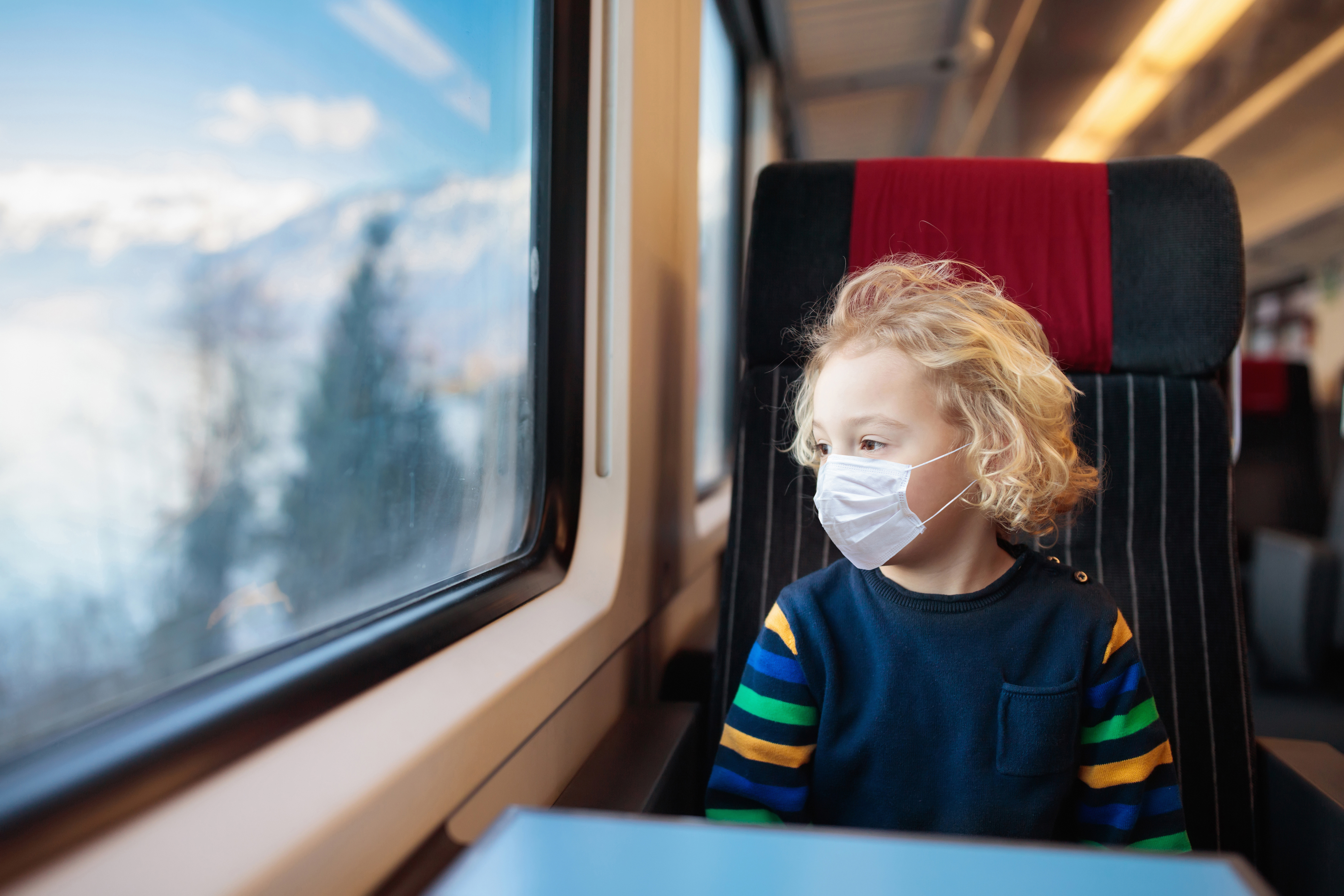 In general, the mask requirement currently applies to children from 12 years of age. However, it can be useful to wear a mask at an earlier age, e.g., from the age of 6, in certain situations. You can take a playful approach to trying out wearing a mask with your child to see whether they accept it. For example, when using public transport or visiting a doctor, wearing a mask offers additional protection, even for younger children. However, general mask-wearing, for example in kindergarten or primary school, is not recommended.
In general, the mask requirement currently applies to children from 12 years of age. However, it can be useful to wear a mask at an earlier age, e.g., from the age of 6, in certain situations. You can take a playful approach to trying out wearing a mask with your child to see whether they accept it. For example, when using public transport or visiting a doctor, wearing a mask offers additional protection, even for younger children. However, general mask-wearing, for example in kindergarten or primary school, is not recommended.
Does the flu shot help against the coronavirus?
The flu shot does not help against becoming infected with the new coronavirus. However, it does protect against influenza, a disease that can severely weaken the body and thus make it more susceptible to other infections. Children with certain diseases (e.g., chronic diseases such as heart disease and asthma, as well as premature babies) should be protected with the flu vaccination.
Our healthcare system, already heavily strained by the many cases of illness during the COVID-19 pandemic, is also being relieved by a reduction in flu cases. Feel free to talk to your pediatrician at any time about the current flu vaccine.
Can I give my child Algifor (ibuprofen) if they have a fever?
In the spring of 2020, the Swiss Federal Office of Public Health (BAG) briefly recommended against using ibuprofen for illnesses caused by the new coronavirus. However, the data on which this recommendation is based has not been confirmed. There is thus no reason not to give your child ibuprofen if they have a fever or are experiencing pain. This opinion is shared by the Swiss Society of Pediatrics and specialists from children's hospitals throughout Switzerland.
What should I pay special attention to during this unique period?
Adhere to the measures issued by the FOPH to contain the coronavirus. Observe the recommended hygiene rules (regular hand washing, regular ventilation, keeping your distance, wearing a mask) in your everyday life. Explain this to your child in simple words.
It is also important to avoid sending a sick child to a daycare center, kindergarten or school. This means that unnecessary infections—be it with coronavirus or another viral infection—are safely avoided.
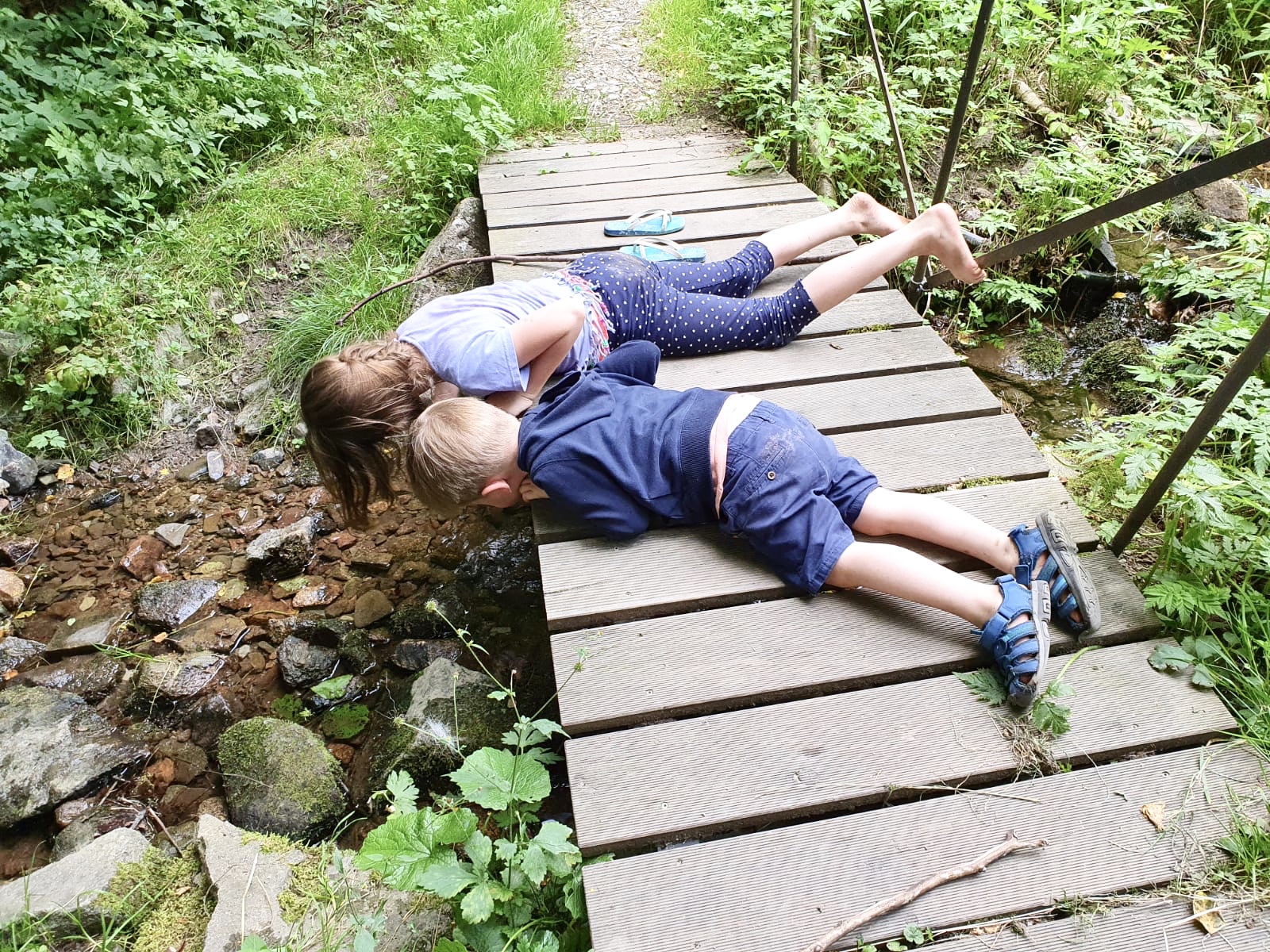
The coronavirus era is not easy for any of us. To allow our children to continue growing up as carefree as possible and develop properly, it is important that you make their everyday life as normal as possible.
Get outdoors in the fresh air, go for a walk in nature. Think of new games that you can play outside with family members. Use the time gained by working from home and not commuting to work to spend time with your child.
In any case, avoid increasing your child's media consumption with too much television or computer games. Exercise and a healthy diet are now more important than ever.
December 31, 2020, Kinderarzthaus in Zürich Stadelhofen
